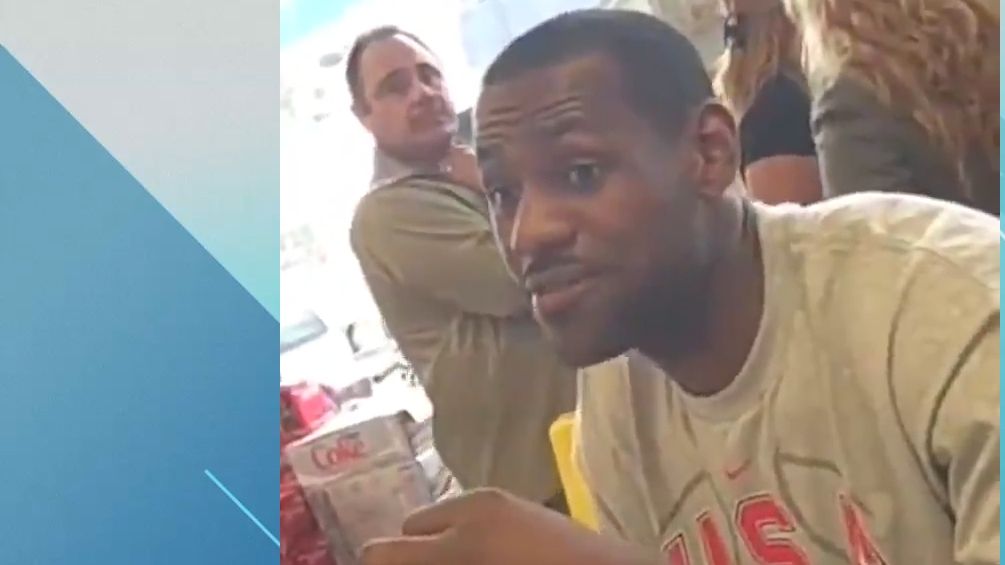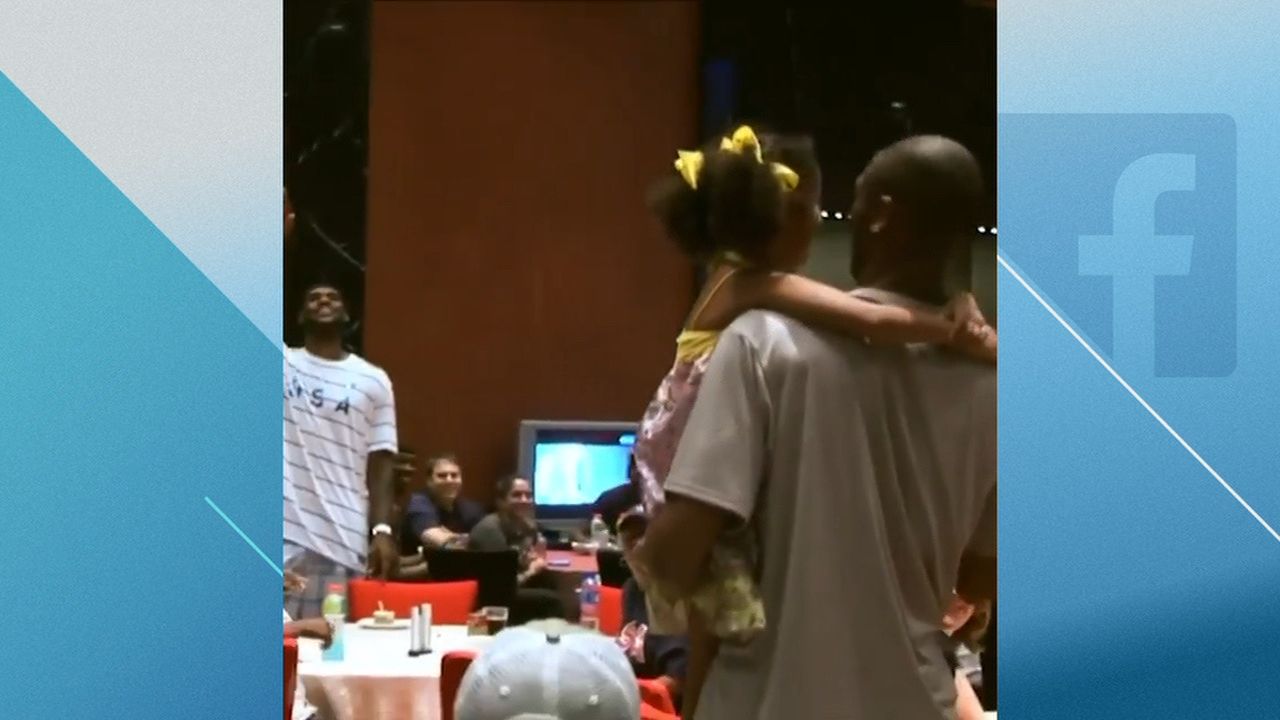The Legacy of the “Redeem Team”: Beyond the Iconic Moment
The iconic moment associated with the “Redeem Team” is, without a doubt, Kobe Bryant with his index finger over his lips. This defiant pose, after a crucial three-pointer and a foul received at a decisive moment in the gold medal match, was laden with symbolism. Bryant wasn’t trying to silence those present at Beijing’s Wukesong Arena, where his fervent Chinese fans were already shouting. His intention was to quell the belief that the United States was no longer the king of world basketball. This weekend, this moment will be repeated in Springfield, Massachusetts, with the formal induction of the 2008 United States men’s Olympic team into the Naismith Memorial Basketball Hall of Fame. The 13 points by Bryant in the last quarter of that day, and especially the four-point play that deeply impacted Spain, are fundamental pillars in the history of that team. Redemption is what makes the summer of 2008 so tangible, a United States team that had been relegated to bronze in the 2004 Athens Olympics, and the four years of shame that followed. It was also a moment of redemption for Bryant, posthumously honored for the second time this week, considering the context of his career. Although the team’s celebration will naturally focus on Bryant’s memory, the story of the “Redeem Team” is much deeper than that last quarter or that summer. The gold medal was the result of a hard road, and many of the players who will now be honored by the Hall of Fame emerged with as many scars as achievements.
The summer of 2006 had ended with another disappointment when a renewed and rethought Team USA was humiliated by Greece in the world championships, in a game in which their defense was torn apart by the basic pick-and-roll. As in 2004, they returned home with bronze medals that were stashed in a drawer and never seen again.
In the first possession of the first game in 2007, against Venezuela, Krzyzewski’s team played zone defense. This moment is not remembered as Bryant’s triple, Dwyane Wade’s famous alley-oop pass in Beijing, or a LeBron James dunk. But these tests and lessons are equally part of the essence of what that group experienced long before boarding the plane to China. There are four players entering the Hall of Fame as part of the “Redeem Team” this weekend who have a unique understanding of that journey. Wade, James, Carmelo Anthony, and Carlos Boozer were part of the great disappointment of the bronze medal in 2004, ending the generation of Olympic dominance of Team USA. None of them played much, one of the many things for which then-Team USA coach Larry Brown was criticized afterward, and they all disliked the experience.Three other players who ended up with gold around their necks in 2008, Dwight Howard, Chris Bosh, and Chris Paul, joined Anthony, James, and Wade on the 2006 team in Japan for the world championships that were supposed to represent a turn towards victory again.“I’m sitting on the podium receiving the bronze medal like ‘this was a waste of time’,” James said in the documentary “Redeem Team” which premiered on Netflix three years ago. “At that moment, I definitely wasn’t going to play for Team USA again.”
LeBron James
They were all part of a group of players who answered Colangelo’s demand to commit to the national team for several summers. For James and Anthony, it ended up meaning giving up summer months in four of their first five years in the NBA.
Instead of getting some kind of reward in 2006, they were exposed by the Greeks, who flaunted the weak points in the American squad and, despite all the star power and star training, Team USA seemed unable to do anything about it. There may have been some progress, some team building, but in the end the atmosphere, once again, was horrible.When we lost to Greece, and I’m not lying, we didn’t want to go home,” Paul said in the book “Basketball: A Love Story.” “I’m telling you, we didn’t want to go home. That’s one of the toughest defeats I’ve felt in my life.”
Chris Paul
But if there was a place where Team USA really began its path to the 2008 gold victory, it might have happened outside of Tokyo. The day after the defeat against Greece, the team was losing by nine points against Argentina led by Manu Ginóbili, the 2004 Olympic champion who had defeated the United States on the way to that gold.
At a time when Team USA could have let go of the rope, a trait the Americans obtained during a streak of international defeats that stretched from 2002 to the previous day, the players pushed themselves and changed the game, pulling away for the victory and slightly avenging the Olympic defeat against the Argentinians. Thus began a winning streak that would last more than a decade.
Wade, James, and Anthony combined for 69 points and then committed, basically on the spot, to return the following summer (although Wade ultimately didn’t play due to injury) to qualify for the Olympics after they failed to do so in Japan. They were miserable, but they were determined.
Bryant’s following minutes on the court are etched in the history books. This moment of leadership will always be appreciated by everyone involved in the program. But while it may have been the most memorable, it may not have been the most defining.There are many players here who are nervous,” Bryant said in the documentary about the situation. “I know they are feeling the pressure much more than I am. I know I’m ready.”
Kobe Bryant
Neither was what Bryant did in the group stage against Spain at the beginning of the Olympic Games. He surprised his teammates when he announced before the game in the locker room that he knew exactly which play the Spanish would start the game with and that he intended to intentionally run over his friend and Los Angeles Lakers teammate, Pau Gasol, in an effort to send a message to everyone about his sincerity in all this effort. Of course, he did, leaving a stunned Gasol on the court with a frown seconds after the jump ball.
But it was really the previous summer, when the Americans had to win that FIBA AmeriCup event to get the Olympic spot, that Bryant’s leadership campaign really began.Bryant’s example is legendary within USA Basketball, personified during the pre-tournament training camp, when Bryant made sure to be in the hotel lobby when his teammates returned from a long night at a Las Vegas nightclub so they could see him go to the gym for a pre-dawn workout.
It was during that time that James, eager to take the next step as a leader after his first experience in the NBA Finals months before, began to closely study Bryant’s habits and style. James later said that this experience helped him find his voice and his work ethic as a leader, a trait that USA Basketball continues to benefit from in the modern era. Soon James joined Bryant in those early workouts and other teammates followed. James led the 2024 Team USA that won a fifth consecutive Olympic gold medal in Paris, 16 years after the start of the streak, when James set the tone with a very serious and intense training camp again in Las Vegas. In a way, some of this can be traced back to Bryant and the tone set in 2007.
“Rarely does someone have the opportunity to have a game plan, see it executed to perfection, and get the desired result. That’s what happened and put our U.S. basketball team on a course for many gold medals over the last 20 years.”When the gold medals were distributed in Beijing, the “Star-Spangled Banner” was played, the flag was raised, it was a moment of total culmination,” Colangelo said when the Hall of Fame honor was announced earlier this year.
Jerry Colangelo











